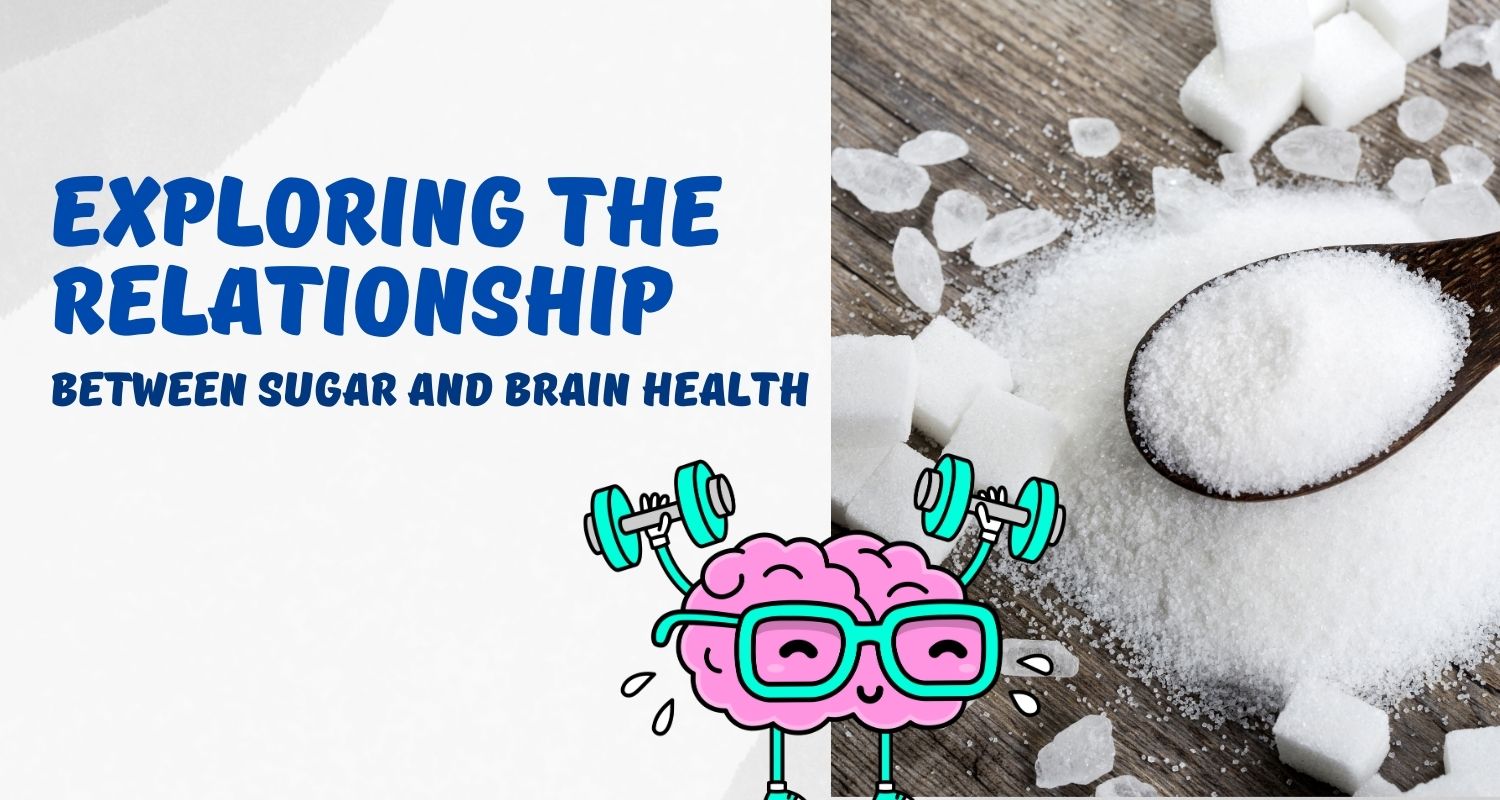Sugar is omnipresent in our daily diet, found in various forms in almost every meal we consume. While many of us know the impact sugar can have on our physical health, its effects on the brain are often overlooked. The connection between sugar and brain function is a subject of increasing interest among researchers and health enthusiasts.
This blog post will explore seven essential facts illustrating the intricate relationship between sugar and the brain.
1. The Brain on Sugar: A Fueling Dilemma
The brain is a highly energy-dependent organ, and glucose is its primary fuel source. When we consume sugar, it is broken down into glucose, providing a quick energy boost to the brain.
However, the rapid spikes and subsequent crashes in blood sugar levels that come with sugary foods can lead to fluctuations in cognitive function. This rollercoaster effect may result in mood swings, irritability, and difficulty concentrating.
2. Sugar and Brain Function: The Sweet Imbalance
While the brain relies on glucose for energy, too much sugar can lead to insulin resistance. Insulin is a hormone crucial for regulating blood sugar levels, and when the body becomes resistant to its effects, the brain’s ability to utilize glucose efficiently is compromised.
This insulin resistance is not only associated with type 2 diabetes but also contributes to cognitive decline and an increased risk of neurodegenerative disorders.
3. The Sugar-Induced Inflammation in the Brain
Excessive sugar intake has been linked to chronic inflammation throughout the body, including the brain. Inflammation in the brain can disrupt the normal functioning of neural pathways and has been implicated in the development of conditions like Alzheimer’s disease.
Research suggests that high consumption of sugar to the brain may trigger an inflammatory response in the brain, contributing to cognitive decline over time.
4. Sugar and Brain Connection: The Dopamine Dilemma
Sugar consumption activates the brain’s reward system by stimulating the release of dopamine, a neurotransmitter associated with pleasure and reward. While this mechanism is natural and essential for survival, overstimulating these reward pathways through excessive sugar intake can lead to desensitization. [1]
This means that over time, more sugar is needed to achieve the same pleasurable response, contributing to a cycle of cravings and potential addiction.
5. The Gut-Brain Connection: How Sugar Influences Microbiota
Recent research has uncovered a fascinating link between the gut and the brain, known as the gut-brain axis. The composition of trillions of microbes in our digestive system plays a crucial role in this connection. [2]
Excessive sugar consumption can alter the balance of gut bacteria, leading to an overgrowth of harmful microbes. This imbalance has been associated with cognitive issues, including memory impairment and mood disorders.
6. Sugar and Neuroplasticity: Impact on Learning and Memory
Neuroplasticity refers to the brain’s ability to adapt and form new neural connections, a process vital for learning and memory. Emerging evidence suggests that a diet high in sugar for the brain may hinder neuroplasticity, impairing the brain’s ability to create and strengthen synaptic connections.
This could have profound implications for cognitive functions such as learning, memory consolidation, and information processing.
7. Balancing Act: The Role of Healthy Sugar for Brain Health
Not all sugars are created equal. While excessive refined sugar consumption has been linked to various adverse effects on the brain, natural sugars in fruits and vegetables offer a different story.
These whole foods contain essential nutrients, fiber, and antioxidants that contribute to overall brain health. Choosing a balanced diet that includes these natural sugars and other brain-boosting nutrients can support cognitive function without the detrimental effects associated with added sugars. [3]
Conclusion
The link between sugar and the brain is a complex and multifaceted relationship that extends beyond mere energy supply. Excessive sugar consumption has been implicated in cognitive decline, neuroinflammation, and disruptions to reward pathways. As our understanding of this connection deepens, it becomes clear that making informed dietary choices is crucial for physical health and optimal brain function.
Striking a balance by choosing whole, nutrient-dense foods over processed, sugary options can preserve cognitive well-being and support a healthy brain throughout life.
References
- Tryon, Matthew S., et al. “Excessive sugar consumption may be a difficult habit to break: a view from the brain and body.” The Journal of Clinical Endocrinology & Metabolism 100.6 (2015): 2239-2247.
- Di Rienzi, Sara C., and Robert A. Britton. “Adaptation of the gut microbiota to modern dietary sugars and sweeteners.” Advances in Nutrition 11.3 (2020): 616-629.
- Beilharz, J.E.; Maniam, J.; Morris, M.J. Diet-Induced Cognitive Deficits: The Role of Fat and Sugar, Potential Mechanisms and Nutritional Interventions. Nutrients 2015, 7, 6719-6738. https://doi.org/10.3390/nu7085307

